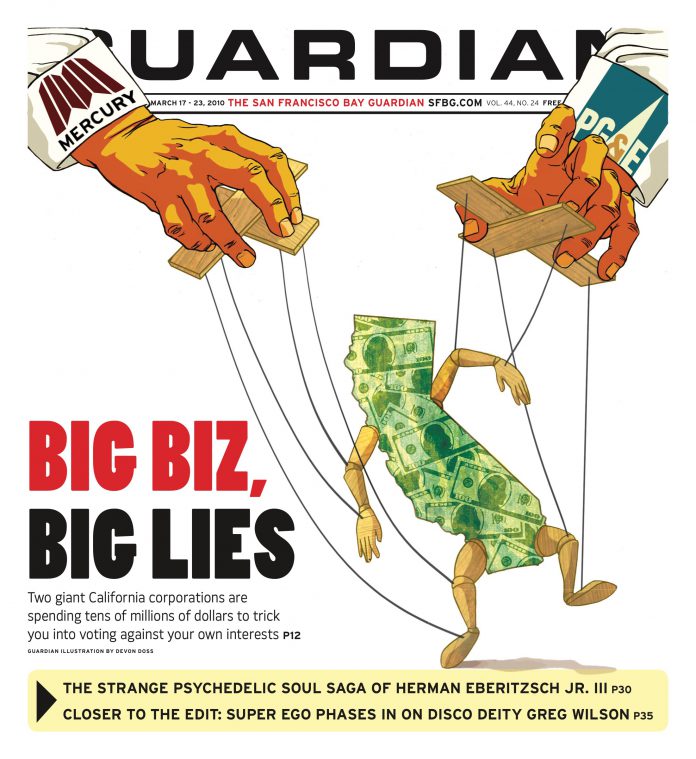arts@sfbg.com
FILM Zhao Liang’s Petition is an audacious documentary, making up for whatever it lacks in formal innovation with an extraordinary level of commitment and narrative insight. Using a lightweight digital camera to enter repressed zones of Chinese society, both in the guts of bureaucracy and at its most wretched margins, Zhao spent a decade tracking the bitter lives of citizens who travel to Beijing to petition the central government for a fair hearing. Once there, they face malicious neglect and interminable waiting. The petitioners live on the street or crammed into small hotels, in constant fear of "retrievers" from their home provinces. The government estimates local corruption statistics by the numbers of complaints, so there’s incentive for these thugs to prevent dissenters from ever reaching the front of the line.
Forget the critic’s shorthand of "Dickensian" or "Kafkaesque." Franz Fanon is a closer match for Zhao’s radical engagement, but the point is that Petition‘s testimonies are not positioned for literary identification. "Our city has millions of people," a retriever threatens a petitioner, unaware that he’s on camera, "We don’t care if one disappears." The film does. Zhao’s rage is made clear without recourse to platitudes. More important, Petition‘s chorus of suffering never congeals into an undifferentiated mass; we never forget that this purgatory is finally someone’s life.
Zhao’s hidden camera generates damning evidence, but the documentarian’s most effective tool is time. Ten years is a long enough span to realize aging, a necessary reference point for Petition‘s trail of arrests and relocations — with each, the prospect of justice ever more remote. When the petitioners’ tents are razed for an Olympic park, their slow grind is directly juxtaposed with the country’s rapid development, and the common murmurs of uprising come to seem comprehensible, perhaps even inevitable.
Over her decades as the engaged American intellectual par excellence, Susan Sontag occasionally received flack for projecting her own quest for moral seriousness on other peoples’ struggles. Promised Lands (1974), one of four films she made and the only documentary, is not so well known as "Trip to Hanoi" or her productions of Beckett in Sarajevo, but it does nonetheless issue from this less appealing side of her intellect. Unlike Petition‘s effortful humility, Promised Lands has the tokenizing insouciance of a tourist’s slideshow. The 16mm film was cobbled together in the immediate aftermath of the Six Day War, with strident Zionist Yuval Ne’eman and leftist intellectual Yoram Kaniuck serving as the alpha and omega of the Israeli soul.
Their rhetorical styles are opposed, though the conclusions they draw are equally foregone — for Ne’eman, Israel will follow Spain in ousting the Arabs (he says this without a trace of irony, the Inquisition notwithstanding), while for Kaniuck it is enough to say it can only end tragically, since both sides are "right." Both avoid any serious talk of political realities. For her part, Sontag presses a densely collaged soundtrack (shades of Godard and Emile de Antonio) over voyeuristic, estranged views of Jews at the Wailing Wall, encroaching consumer capitalism (Promised Lands‘ most significant insight), Hasids roaming the desert streets, and blackened corpses in the dunes.
The real problem with Promised Lands isn’t its lack of Palestinian voices — it’s that Sontag never rises to the challenge of describing what it means to make this film as an American. Given what she would later write in On Photography, it’s curious that she could be so blasé here about wielding the camera as a mystifying poetic-ethnographic instrument. The film ends with the sound of an unseen woman’s cries, her suffering wholly detached from its cause and context. One can’t escape the sense that Sontag was enamored by a place where moral issues were right on the surface, but that she never solidified this abstract "interest." Our loss.
YBCA PRESENTS HUMAN RIGHTS AND FILM 2010
Petition, Thurs/18, 7:30 p.m., $8
Promised Lands, March 25, 7:30 p.m., $8
Yerba Buena Center for the Arts, 701 Mission, SF
(415) 978-2787, www.ybca.org

